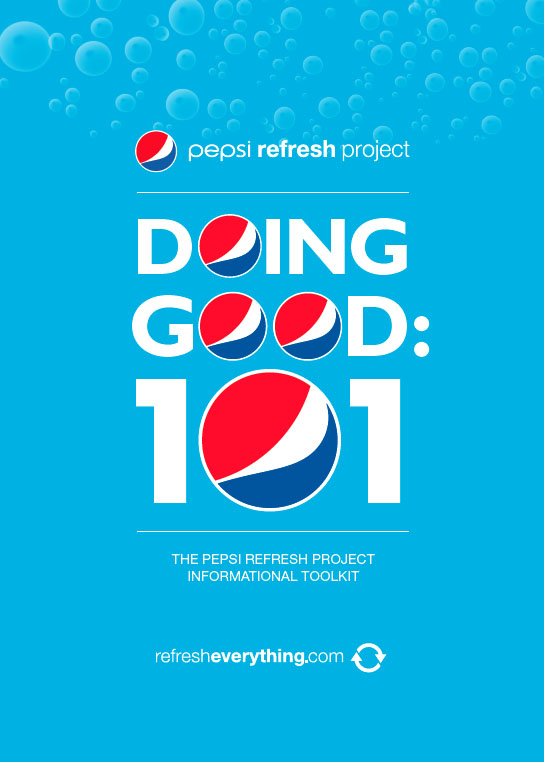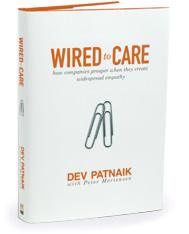 Sustainability. In a fast-paced, 140-character world, short term and one-hit wonder thinking is rampant. But when it comes to making a difference and solving the great problems of our times, we need to be thinking for the long-term. This is why I hope the voters of Pepsi’s Refresh Everything Project will keep the concept of sustainability top-of-mind.
Sustainability. In a fast-paced, 140-character world, short term and one-hit wonder thinking is rampant. But when it comes to making a difference and solving the great problems of our times, we need to be thinking for the long-term. This is why I hope the voters of Pepsi’s Refresh Everything Project will keep the concept of sustainability top-of-mind.
Let me first say that I applaud Pepsi’s jump into social good–and I hope more groups follow their lead. Perhaps if more did, then we’d have more case studies, a deeper set of lessons learned and more refined best practices. In a sense, we’d have more to talk about. This post is not for the folks at Pepsi. Rather, it’s aimed at the people who are engaging in Pepsi’s Refresh Everything Project.
For those not familiar, Pepsi is foregoing its Superbowl Ads and instead, engaging in a social good experiment. Pepsi will award a total of $20 million in grants over the course of the year. Who will receive the grants? That’s for you, me and everyone else to decide by voting–and a big reason why I hope, each voter, keeps in mind the concept of sustainability when reviewing the proposed projects. (More on how the project works.)
When reviewing the proposals, a thought kept pulsing, growing bigger and bigger inside me. Pepsi is awarding $20 million dollars in resources–but what if you had $20 million dollars or your organization did–how would you allocate those resource and why?
Sure–Recruiting people to help clean the highways is great–but what if we knew of a way to make it where people didn’t litter in the first place?
Sure–It’s great to offer a summer camp to kids to teach them to better appreciate the earth, but how can we scale this to reach more children in more places?
Sure–It’s great to find ways to get people up and moving. But, there are so many good people working to achieve this already. What strategies do they find working? Let’s invest there.
The Pepsi Refresh Project is a great initiative, but it’s just a start. I expect (and hope) we’ll start to see more of it. I also agree with Beth Kanter that, with crowdsourcing efforts, this is where having a key group of content experts involved is key. But, to me, the biggest take-away is that we, as a community, need to be thinking more strategically with our resources–this is why I love social marketing. It addresses both the short-term and the long-term. It looks at advocacy as well as promotion and a wide range of other various tools. It thinks both upstream and downstream. In other words, it offers a framework for us to create sustainable programs, products and services that truly can make a lasting change and a better world.
Thus, to all you voters, when reviewing, please keep in mind the idea of sustainability. What’s going to make the biggest difference for the amount of effort, resources and time?
What about you–what advice do you have either to Pepsi or to the fellow voters?
 Book: Wired to Care
Book: Wired to Care
